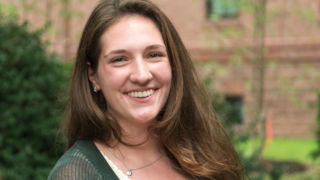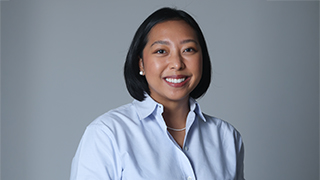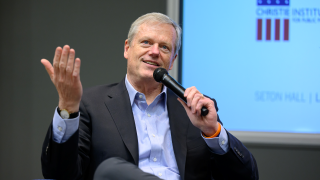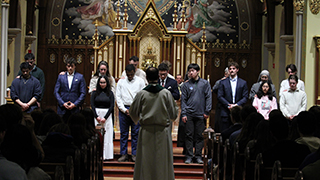How the So-called “Soft Skills” of an English Major Translate to Real-world Professional Career Advantages
Monday, September 30th, 2019

It was freelance, at first, for $25.00 an hour, but in short order Kiersten began to make an impression on her colleagues. Senior copywriters started coming to Kiersten to ask her opinion about things. Sometimes the questions were about minutia—like whether it was appropriate to put a footnote on the title of a poster. "These answers came easy to me thanks to my writing background, and I was able to help by pointing out the particular title didn't have a claim," she recalls. Other times, senior staff relied a bit more on what learning scientists now call "soft skills," Kiersten's ability to synthesize information and then convey that synthesis in crystal clear prose. "Once, at another company, I was doing research audits and my manager was writing "thought-leadership" articles—in this case, a kind of essay on a given theme in the healthcare industry that demonstrates our clients' expertise." At one point, recalls Kiersten, her manager decided that Kiersten should write the thought-leadership articles. "So, for a spell, we switched jobs—she did the research audits and I wrote the thought-leadership articles." It was an important experience, she recalls, that signaled how much confidence others had in her. In three months, Kiersten was hired full time as an associate copywriter, complete with salary and benefits. Her Masters in English helped bump her salary above the starting average for an associate-level copywriter, which is $47,000, according to the job research firm Glassdoor. Senior copywriters can make as much as $90,000 a year, depending on their experience and location.
How has her experience as an English major at Seton Hall helped her at Ogilvy? The first thing Kiersten points to is the training that she received as an M.A. student in the Writing Spoke, which she compares to "swimming in the deep end of the pool." Kiersten recalls that the graduate literature courses could be daunting, but those encounters with difficult texts gave her the confidence that there is no arcane text, no Byzantine worm-hole of the American healthcare system that she can't unravel. The Writing Spoke classes at Seton Hall honed her skills, of course, but for Kiersten it was the accumulated effect of being surrounded by people who were interested in ideas—in literature, in music, in art—and this set of soft skills has allowed her to flourish with her colleagues at Ogilvy, whom she describes as "a tribe of people interested in culture, in movies, literature, song lyrics. As an English major, I've been writing about these things for years. When you find yourself in a large corporation, you find that as a former English major, you have a stealth skill."






